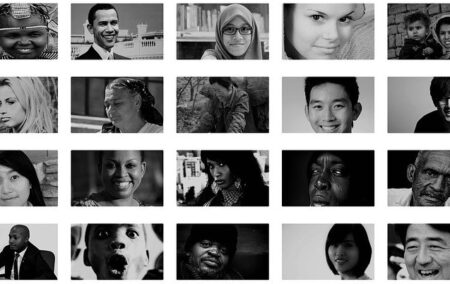‘One man with a rifle who can change the course of history.’ This was the blurb for ‘The Day of the Jackal’, Frederick Forsyth’s marvellous thriller about a lone gunman’s attempt to assassinate President Charles de Gaulle.
The premise was that one bullet in the head of De Gaulle would change the course of history (true) and that his life was politically more important than that of any ordinary Frenchman (also true).
But there are deeper questions before Heaven. Did De Gaulle’s life have more inherent moral worth than that of an ordinary person? Would it have been more evil to murder De Gaulle than some ordinary person? Do some lives matter more than others?
The South African courts think so.
On Thursday, President Ramaphosa delivered a speech extending the Covid-19 lockdown by two weeks. He spoke of the ‘massive loss of life’ the Coronavirus could cause. Strangely enough – or rather, unstrangely enough – he made no mention of the loss of life, perhaps ‘massive’, his lockdown will cause. The next day, Good Friday, was the 27th anniversary of the murder of Chris Hani.
Reverential acclaim
Ramaphosa was sad, solemn, sombre, serious and statesmanlike – winning reverential acclaim from our mainstream media. Around the world, politicians get praise from the media when they implement lockdown. Lockdown is politically safe. Only a brave politician would dare to allow the economy to proceed as usual while taking measures to protect the vulnerable, extending testing and isolating people infected.
How many people will die as a result of lockdown? In plainer English, how many people will the lockdown kill? CR did not pose this question, nor does any politician around the world, and nobody tries to answer it.
In our failing economy, lockdown will increase poverty and kill people through malnutrition, rising unemployment, depression and violent crime
A comparison between the GDP and life-expectancy of countries shows that below a certain threshold, the richer you are, the longer you live. (Above that threshold it doesn’t matter.) Poverty kills. In our failing economy, lockdown will increase poverty and kill people through malnutrition, rising unemployment, depression and violent crime. Businesses will close and never open again.
I see ‘mathematical models’, which like to ‘flatten the curve’, predicting the number of deaths by Covid-19 in various circumstances. I never see any mathematical model predicting the number of deaths caused by lockdown.
The lives of the people who die of Covid-19 seem to matter more than those who die of poverty caused by lockdown. The media tell us about important people who have contracted or died from Covid-19. Their lives matter. They don’t tell us about anybody who has died because of the lockdown. Their lives don’t seem to matter – and they are more difficult to identify.
Denied parole
Last month, Janusz Walus, who murdered Chris Hani on 10 April 1993, was again denied parole and remains in prison. Three other killers of those troubled times are walking free, with the full approval of our justice system. In 1986 (just after the Pass Laws had been repealed) Robert McBride killed three innocent, ordinary women with a bomb in Durban. In 1988, Barend Strydom shot dead seven innocent, ordinary people in Pretoria. In 1993, Letlapa Mphahlele ordered the massacre in St James Church, Cape Town, where 11 innocent, ordinary churchgoers, were killed. Why are McBride, Strydom and Mphahlele free while Walus is not?
The answer is clear. The first three killed ordinary, non-political, unimportant little people. Their lives didn’t matter.
Walus was the only killer who selected a purely political target. He killed Chris Hani for political reasons (because he was a communist, and Walus hated communism, which he had experienced).
this should have given Walus more claim to amnesty than the others
According to the TRC’s brief, this should have given Walus more claim to amnesty than the others. But the TRC was a travesty and ignored principles of impartiality. According to our justice system, also partial, Hani was important and his life mattered. His loved ones, who mourn him, matter. The victims of the other three are not important and their lives didn’t matter. Nor does the sorrow of their loved ones.
Price on human life
I want to scream every time I hear a politician say, ‘One death is one death too many!’ (often the Minister of Transport after more slaughter on our roads, which he has made little effort to overcome) or ‘You can’t put a price on human life!’ Of course you can, and we do all the time. Doctors routinely switch off the life-support machine of an old, sickly man with no hope of recovery to give it to a young man, otherwise healthy, because they know the price of providing such machines for everybody is too high.
After the lockdown we might be able to cost the economic downturn and the number of excess deaths during it, and so calculate the price of a human life.
My (not well-informed) guess is that lockdown will kill more people than it saves. But some lives matter less than others. In fact, some don’t matter at all.
The views of the writer are not necessarily the views of the Daily Friend or the IRR
If you like what you have just read, subscribe to the Daily Friend


